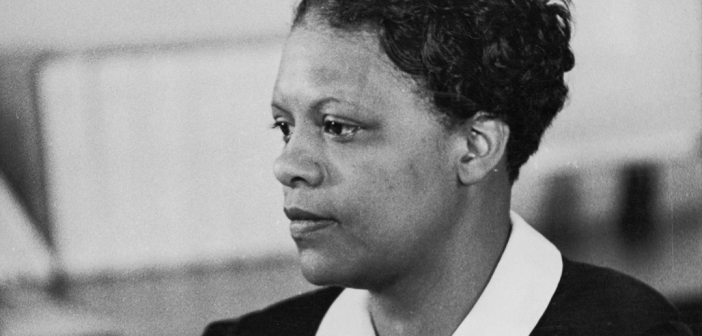Eunice Carter: The Pioneering Black Prosecutor Who Brought Down Gangster “Lucky” Luciano
When social worker-turned-prosecutor Eunice Carter was handling prostitution cases in Harlem’s Women’s Court in 1935, she noticed something familiar about the accused women’s representation. They were the same lawyers and bail bondsmen whose names came up time and again in Mob cases. What’s more, the women all seemed to have been coached to offer the same explanations and defenses for their cases. Carter alerted crusading special prosecutor (and future governor and presidential candidate) Thomas Dewey that she may have discovered a path to collecting hard evidence of organized crime’s involvement in prostitution. Dewey quickly appointed her to a team of lawyers working to take down the Mob in New York City, making her the first Black woman to become an assistant district attorney in the state of New York.
Born in 1899 in Atlanta to social activist parents, Carter had moved with her family to Brooklyn and grown into an excellent student with a keen interest in public service. After graduating from Smith College with a bachelor’s and a master’s degree, she became a social worker in Harlem and soon enrolled in law school at Fordham University. She was the first Black woman to graduate from the program and passed the New York State Bar in 1933.
At this time, Charles “Lucky” Luciano — creator of the “Commission,” the organized crime syndicate run by New York’s five Italian crime families and some top Jewish mobsters — was overseeing drug-running, illegal liquor operations, loan sharking, numbers and prostitution. He was the most powerful gangster in the country, and Thomas Dewey had set his sights on bringing him down. But Luciano was good at covering his tracks, and so far it had been tough to prove his direct involvement in the criminal enterprises.
Based on Carter’s discoveries, she and Dewey masterminded a sting operation that led to a raid on brothels and the arrest of 100 sex workers, some of whom were quickly convinced to testify about Luciano’s ties to the brothel business. Carter and Dewey established that Luciano and his associates had compelled the sex workers to turn over half their earnings in exchange for legal representation, earning the gangsters millions of dollars. Luciano was convicted of pandering on a large scale — illegally profiting from prostitution — and was sentenced to 30 to 50 years in prison. Carter had played a central role in the first conviction of a major organized crime figure for anything other than tax evasion.
Although Carter’s approach to the case predated the Racketeer Influenced and Corrupt Organizations Act, known as RICO, the case against Luciano pioneered the strategy future prosecutors would use to go after the Mob, and it also marked a turning point in the government’s attempts to overcome the power and influence of organized crime. The high-profile Luciano prosecution propelled Dewey to the national stage, but he always credited Carter for her legal ingenuity and called on her advice throughout his career.
Carter later became head of the District Attorney’s Special Sessions Bureau, then entered private practice and continued her work in organizations such as the National Council of Negro Women, the United Nations and on the national board of the YWCA. She died in 1970. Read more about Eunice Carter here.

